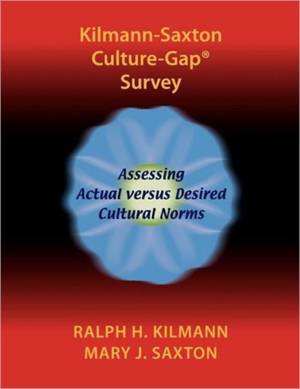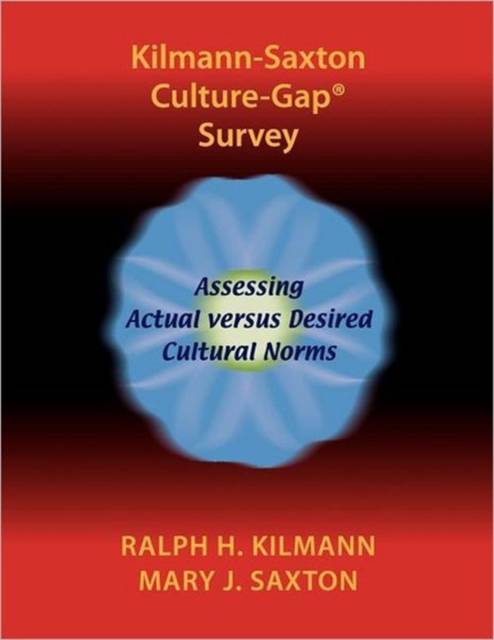
- Afhalen na 1 uur in een winkel met voorraad
- Gratis thuislevering in België vanaf € 30
- Ruim aanbod met 7 miljoen producten
- Afhalen na 1 uur in een winkel met voorraad
- Gratis thuislevering in België vanaf € 30
- Ruim aanbod met 7 miljoen producten
Zoeken
€ 32,45
+ 64 punten
Omschrijving
The Kilmann-Saxton Culture-Gap(R) Survey is a self-report assessment that takes only fifteen minutes to complete and another ten minutes to graph the Culture-Gap Profile of a work group of five to fifteen members This profile pinoints the difference between actual and desired cultural norms. Additional Culture-Gap Profiles can be calculated for larger work units, including the entire organization. Following completion of these graphs, the members of one or more work groups can begin discussing how to close the largest Culture-Gaps that were identified in four areas: Task Support, Task Innovation, Social Relationships, and Personal Freedom. Previously, unconscious, unstated "rules of the game" (actual norms) often undermined everyone's best efforts and intentions. Once the these culture-gaps have been closed (or at least brought within an acceptable threshold), members can effectively proceed with other change initiatives and improvement programs.
Specificaties
Betrokkenen
- Auteur(s):
- Uitgeverij:
Inhoud
- Aantal bladzijden:
- 32
- Taal:
- Engels
Eigenschappen
- Productcode (EAN):
- 9780983274216
- Verschijningsdatum:
- 15/01/2011
- Uitvoering:
- Paperback
- Formaat:
- Trade paperback (VS)
- Afmetingen:
- 216 mm x 279 mm
- Gewicht:
- 99 g

Alleen bij Standaard Boekhandel
+ 64 punten op je klantenkaart van Standaard Boekhandel
Beoordelingen
We publiceren alleen reviews die voldoen aan de voorwaarden voor reviews. Bekijk onze voorwaarden voor reviews.











